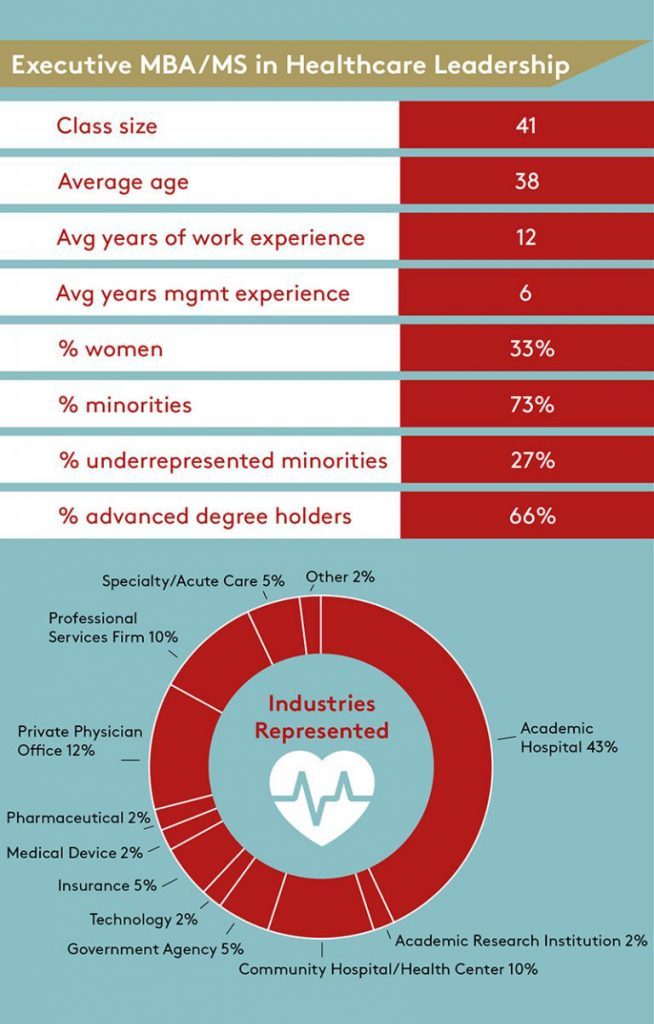School v. School: UNC Kenan-Flagler vs. Duke Fuqua School of Business

The MBA application process is not for the faint of heart. Elite programs have increasingly required applicants to follow paths unique to their schools, which makes the process of narrowing down the options to find the right fit even more essential. Our School v. School series saves you the headache by offering a point-by-point comparison of two stand-out programs located in North Carolina’s Research Triangle: UNC’s Kenan-Flagler School of Business and Duke’s Fuqua School of Business. Read below to find out how the intense UNC vs Duke rivalry shakes down when it comes to business schools.
Top 5 European MBA Programs for ROI

There’s no denying that European business schools are commanding a growing share of MBA students. According to the latest trends, as MBA applications have dropped in the U.S., they’ve increased. Last year, 61 percent of European business schools reported an increase in application volume.
There are many reasons for this increase, from the changes in U.S. immigration policies to the desire for a more globally focused education. However, one of the most appealing aspects of European business schools has to be cost. American business schools typically require a hefty investment in tuition as well as two years of foregone salary. In Europe, it is far less.
Many schools in Europe receive government funding, allowing it to offer lower tuition. For example, an MBA at IMD in Switzerland costs just CHF 60,000 for its One Year MBA. This low tuition cost and short program length also translates into a powerful return on investment (ROI). Continue reading…
New Forté Foundation Study Reviews MBA Impact for Women and Minority Students

What’s the MBA impact for women and minority students? That’s the question that the Forté Foundation set out to answer in its most recent MBA study.
Key MBA Study Insights
After surveying 900 male and female MBA alumni who graduated between 2005 and 2017, it found mixed results. While an MBA might boost earning power and increase equality in the workplace for minorities, the same cannot be said for women, according to the study led by Michelle Wieser, Interim Dean of St. Catherine University’s School of Business.
Post-MBA Female Graduates

An MBA may not be helping gender pay gap differences, according to new data from the Forté Foundation.
- Post-MBA, the pay gap between men and women does not improve. Women still earn less. In fact, pre-MBA women earned 3 percent less than men, and post-MBA the deficit widened to 10 percent for their first job after an MBA and 28 percent for current compensation.
- Women report less job satisfaction post-MBA than their male counterparts. They don’t advance to the same level as men and have fewer direct reports.
- About 34 percent of men and 65 percent of women think there’s a gender pay gap.
- Around 40 percent of respondents, primarily women, admitted to experiencing the gender pay gap. Unfortunately, these self-same respondents stated that they did not take action while others admitted to leaving the company.
- The gender pay gap in the study was 28 percent, representing $58,994 in annual compensation.
“While some salary disparity can be explained by the job functions women choose, there is likely unconscious bias and other factors at play,” Elissa Sangster, CEO of the Forté Foundation says in a press release. “This is a wake-up call—companies need to take proactive steps to lessen the pay gap, or risk losing highly-skilled women employees.”
Post-MBA Minority Graduates

The return on investment (ROI) gap still persists for both male and female minority graduates, with female minority MBAs earning 70 percent less than non-minority counterparts.
- For minority men and women, the MBA narrows the pay gap in their first post-MBA job and beyond—going from 24 percent pre-MBA to 16 percent post-MBA and 12 percent currently. However, minority graduates still earn less than non-minority grads from pre-MBA to the present.
- Overall, minority MBA graduates have lower career satisfaction than non-minorities when it comes to current salary and career progression.
- The ROI of an MBA for minority women is 70 percent, and for minority men it’s 84 percent.
“It’s encouraging to see an MBA provides greater economic mobility for women and minorities and narrows the pay gap for minorities in their first job post MBA,” Sangster says, “but the whopping gender pay gap and income disparity for women and minorities needs to be addressed, and soon.”
Forté Foundation’s MBA Study Conclusion
Despite the gender and minority pay gap, the Forté Foundation MBA study still reveals a positive return on investment. There’s an over 63 percent salary bump or higher post-MBA for both minority and non-minority women. Though the salary boost for men post-MBA is higher at 75 percent.
This article has been edited and republished with permissions from its original source, Clear Admit.
Real Humans of the Rutgers Business School

When considering earning an MBA, a few priorities tend to stick out. Cost, career opportunities, flexibility, and educational value are all obvious sticking points. However, another crucial feature should matter more when it comes time to decide where you’ll go: return on investment.
The Rutgers Business School in New Brunswick and Newark, New Jersey, isn’t just the premiere MBA option in the Garden State (ranked 44th overall by U.S. News & World Report): it’s among the best return on investment opportunities you can find anywhere.

According to the Financial Times, which also ranks RBS among the best business schools in the world, the average salary jump for MBA grads is a staggering 112 percent. This return on investment figure bests some of the most recognizable programs in the world, including Dartmouth’s Tuck School of Business, the London Business School, and New York University’s Stern School of Business.
Part of the reason for such a pronounced ROI is, of course, the school’s ideal proximity to the New York City metro, offering students extensive opportunity advantages that other prestigious institutions struggle to compare to. Other provincial factors in the eye-popping ROI are the lauded areas of focus, including supply chain management (ranked 6th best in the country by U.S. News & World Report). When factored together, it may not be surprising to find a lot of diverse backgrounds studying at Rutgers Business School.
When talking with several current students, the litany of non-traditional students tends to stand out, including a radio DJ tired of an exhaustive industry, a theater vet, a former fifth grade music teacher looking to break out in an entirely new field, and more. Read on to see their stories and what the future may hold for life after an MBA.
What is the Most Valuable San Francisco MBA?

There’s no doubt: San Francisco is a great city to earn your MBA. Located near Silicon Valley, business schools throughout the area provide not only an excellent education but also opportunities to interact with many tech and industry leaders in the area. But which MBA programs in San Francisco are the best?
This is not an easy question to answer. You can check rankings, to see which MBA programs perform well based on surveys and statistics provide to The Financial Times, U.S. News and World Report, and The Economist. And that’s a great place to start, but probably the most essential value when determining the right MBA program for you is your return on investment (ROI).
The ROI of an MBA program is one of the best indicators of what your MBA is actually worth. It looks at statistics such as average salary increase, post-graduation employment, tuition cost, cost of living, and more. To help you out, we looked in-depth at the best business schools in San Francisco to see which offer the best ROI. Continue reading…
Bloomberg Businessweek Praises Rutgers, and More – New York News

Let’s explore some of the most interesting stories that have emerged from New York business schools this week.
Bloomberg Ranks Rutgers MBA No. 1 in the Northeast in Job Placement – Rutgers Business Blog
In its “Best Graduate Business Schools of 2017 ” survey, Bloomberg Businessweek ranked Rutgers Business School (Newark, New Brunswick) as the top business school in terms of job placement within the Northeastern United States,. coming in second overall in the United States. Andy Heller, RBS MBA ’11 and current senior associate director of payor and health system marketing at Boehringer Ingelheim sang Rutgers’ praises in terms of preparing him to succeed in the corporate world.
“That kind of experience has helped me each and every day since graduation. Having diverse perspectives on our team ensured that our solutions would be differentiated, yet relevant, and impactful,” Heller notes.
In addition, RBS topped its fellow Big Ten competitors when it came to return on investment, narrowly edging out the University of Iowa College of Business, and Northwestern University’s Kellogg School of Management. The latter of which offered a higher multi-year ROI for potential MBA students, but cost much more in terms of tuition.
Read more about Rutgers’ rankings and accolades here.
Are You a Good Fit for the Executive MBA/MS in Healthcare Leadership Program? – Johnson Business Feed
The Executive MBA/MS in Healthcare Leadership program at Cornell’s SC Johnson School of Management “integrates the general management curriculum of Johnson’s Executive MBA programs with the deep healthcare expertise of Weill Cornell Medicine’s Healthcare Policy and Research Department.” The joint program was developed to “reflect the future of healthcare” and help “sharpen and deepen the skill sets of healthcare professionals through business and healthcare leadership education,” according to the school.
“Today’s healthcare leaders need to be open to knowledge from different vantage points so they can advance progressive healthcare agendas, locally and nationally. Many healthcare leadership programs are exclusively for physicians. However, as we developed this new program, the physicians we spoke to expressed interest in an executive healthcare program that welcomed non-clinicians from different sectors of healthcare—not just practitioners.”
Take a look at the makeup of the Executive program below:

You can read here to learn more about what the program looks for in terms of applicants.
Rewiring Hidden Biases for Better Outcomes – Gabelli Connect
Fordham University’s Gabelli School of Business recently hosted a talk by Harvard professor of social ethics Mahzarin Banaji who unpacked the hidden biases of well-intentioned people—that is, “the beliefs that live in the subconscious and are formulated due to various exposures throughout one’s life.”
Banaji explains:
“A bias is nothing more than a tilting away from neutrality. There’s bias in the mind of the receiver and the applicant. We have to work with the very groups that are holding themselves back and educate those who are holding them back. We are capable of change by how many times we stretch those muscles.”
Learn more about Banaji’s take on unconscious biases here.
